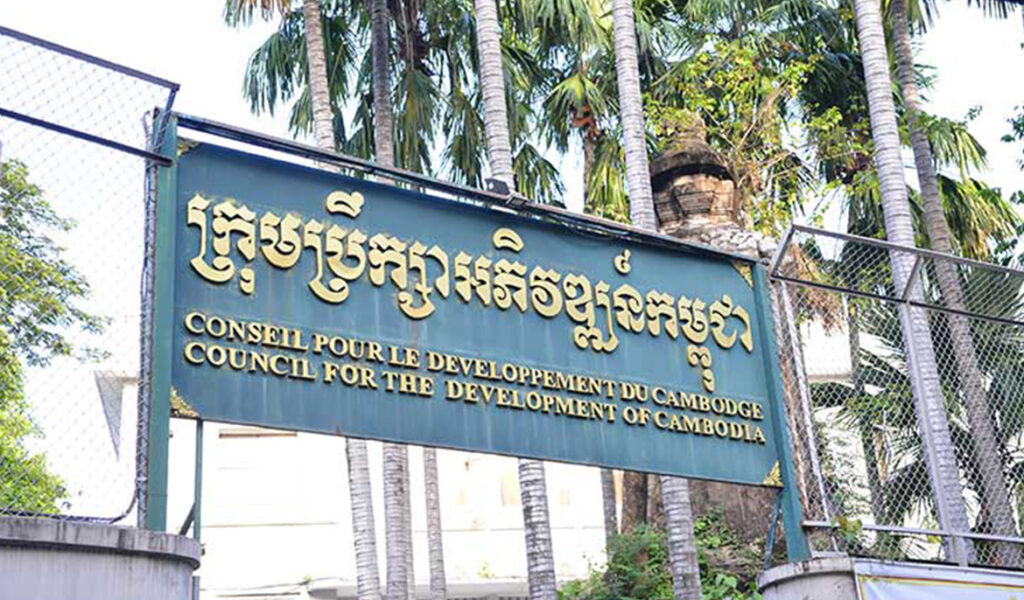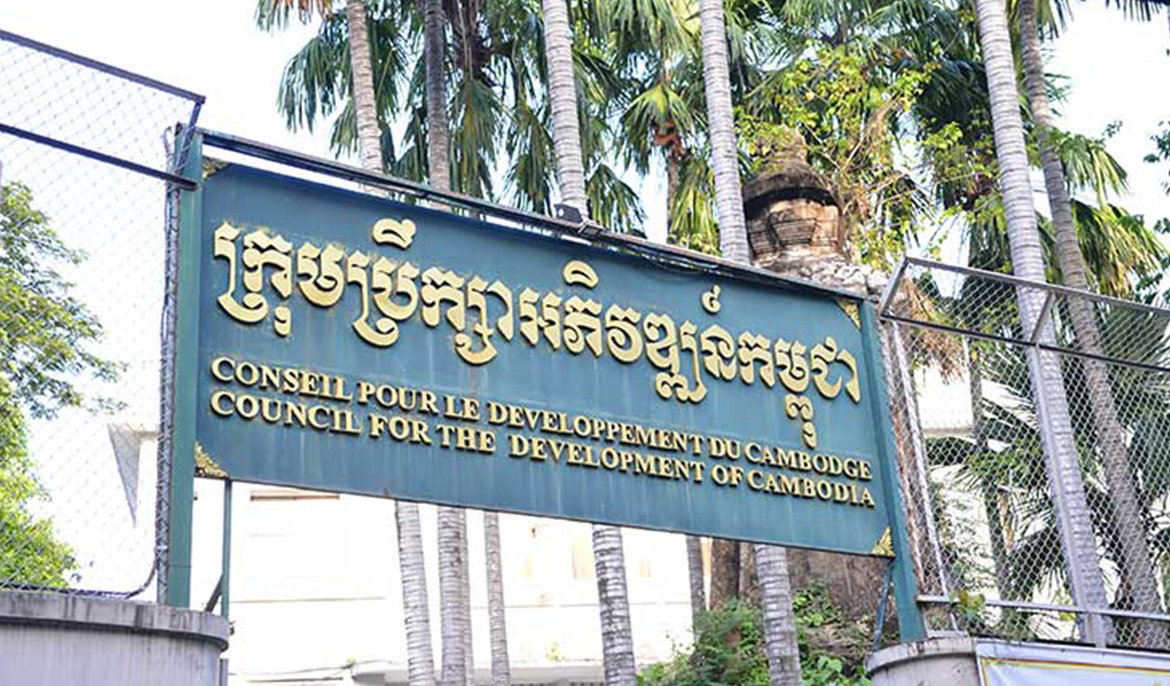The Council for the Development of Cambodia (CDC) approved 153 projects worth approximately $2.75 billion in the first five months of 2024, reaching over 55 percent of the total investment capital in 2023 which recorded $4.92 billion.
The CDC’s latest report showed that it okayed 24 new projects and one expansion project with investment capital worth $246 million in May this year, generating about 15,000 job opportunities for Khmer citizens.
Among the 25 investment projects, 17 companies plan to operate outside the special economic zone (SEZ) while only eight firms will run their production chains in the Kingdom’s SEZ for export interests.
According to the CDC press release, Chinese investment ranked top on the list in May 2024, contributing over 50 percent of the total capital followed by the domestic investors on the second seat as they also contribute up to 31 percent of whole projects.
The sum of the 25 projects was worth approximately $246 million, a decrease of 21 percent compared to $309 million in April. The operation of all the projects in May was expected to create 15,000 job opportunities for local citizens.
In the first quarter of 2024, CDC allowed fixed assets investment and expansion projects worth $2.2 billion in the three months, making the overall budget reach $2.75 billion by May only.
In early January, CDC announced that the Kingdom approved 268 investment projects with a sum of $4.92 billion in 2023, a rise of 22 percent compared to 2022, creating about 307,000 jobs mainly in the industry, infrastructure, agriculture and tourism sectors.
Compared to the investment capital in the first five months of 2023 which recorded only $540.7 million from 64 projects, CDC has collected $2.75 billion from 153 projects – a significant increment of over 500 percent.
Speaking to Khmer Times, Lor Vichet, Vice President of Cambodia Chinese Commerce Association (CCCA) said, “The decision to operate the business inside or outside of the SEZ is based on several factors including the supply chain of raw materials, delivery cost, delivery time and export gateway.”
He emphasised that some factories have limited suppliers offering competitive raw material prices and therefore they need to reserve raw materials for processing for at least six or 12 months to minimize losses due to any suspension of production due to a lack of raw materials.
On the rise of domestic investors reaching over 30 percent, Vichet underlined that a new trend has begun to emerge of Khmer businessmen capitalizing on the potential of business and investment opportunities in their home country. “In fact, a healthy investment environment should be diversified with a collective stream of capital from multiple sources worldwide,” he said.
The CCCA Vice President continued that the economy of Asia will account for almost two-thirds of global economic growth and Cambodia needs a consistent flow of direct investments from multiple sources of national and international investors to accelerate and diversify the economy to serve the growing consumer markets of Asia and Europe and North America.
Based on CDC press release, the priority projects invested out of SEZ to be mentioned are the development solar power plant with a capacity to produce 60 megawatts in Kampong Chhnang province which is estimated to cost $65 million, the set up of a smelter and metal processing plant with $26 million budget and the plan to construct a $16 million steel pipe factory in Sihanoukville province.



